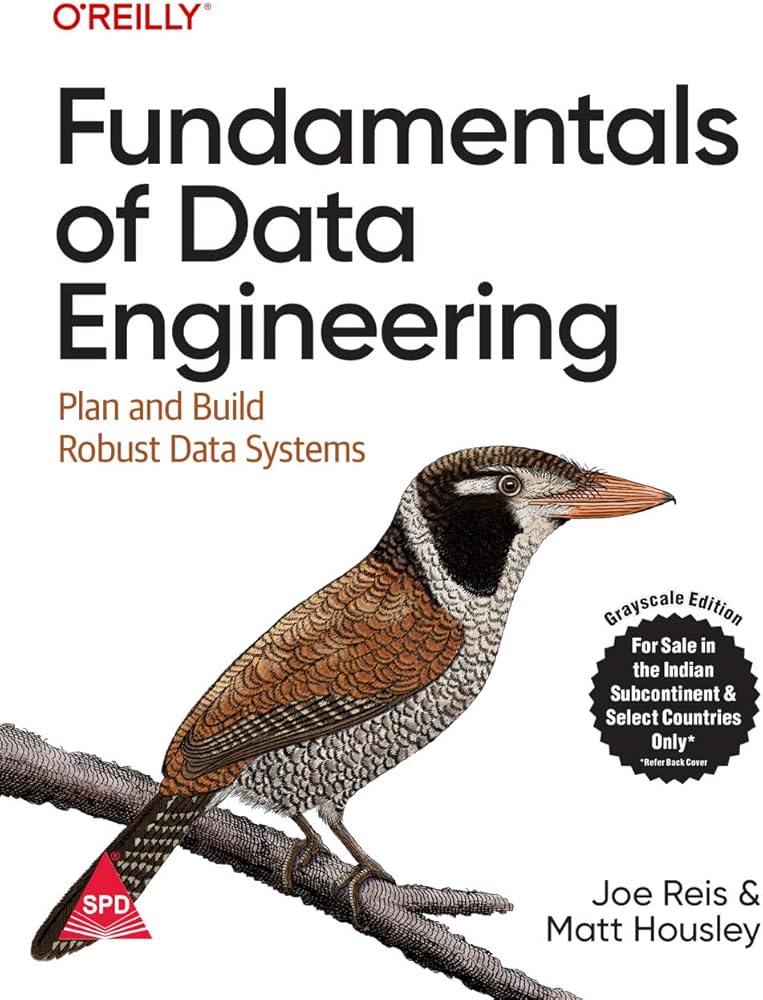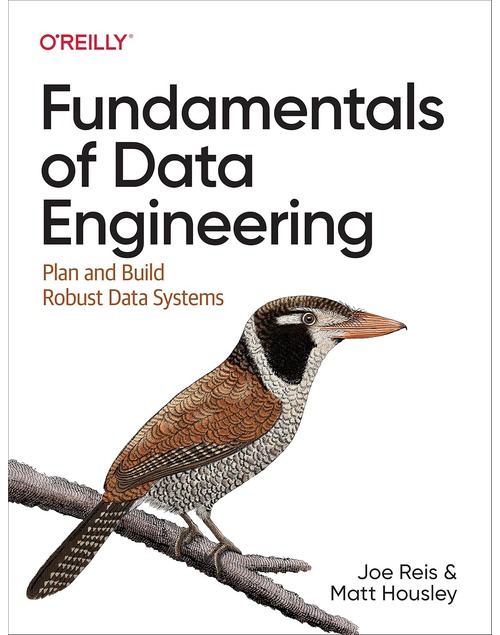In today’s digital world, data has become the backbone of every business decision, innovation, and customer experience. From startups to global enterprises, organizations rely on the ability to capture, process, and analyze massive amounts of data. But here’s the truth — without a solid foundation, even the most advanced data tools or analytics platforms can fail to deliver real value. That’s where the book Fundamentals of Data Engineering: Plan and Build Robust Data Systems comes in as a complete guide for professionals and learners who want to master the art and science of data engineering.
And the good news is, this essential book is now available for sale, making it the perfect opportunity to grab your copy and strengthen your data skills.
Why This Book Matters
Many people think of data engineering as just writing SQL queries or moving data from one place to another. But the field is much bigger and more complex. Data engineering involves designing pipelines that are scalable, reliable, and future-proof. It requires balancing technology, architecture, and business needs.

The book Fundamentals of Data Engineering doesn’t just dive into technical tools; instead, it gives you a clear roadmap to understand how to plan and build robust data systems. Written by experts, the content covers every step of the data lifecycle — from ingestion and storage to transformation and delivery.
For anyone looking to work in data engineering, or even for data scientists and analysts who want to understand the bigger picture, this book is a must-have resource.
What You’ll Learn Inside
The strength of Fundamentals of Data Engineering lies in its structured approach. Here’s a glimpse of what readers gain:
- Core Concepts of Data Engineering
The book starts by introducing the basics — what data engineering really is, how it fits into the modern tech stack, and why it’s crucial for successful analytics. - Data Lifecycle Management
It explains how data moves from raw sources to meaningful insights, covering ingestion, storage, transformation, governance, and delivery. - Modern Architectures
From traditional databases to cloud platforms and distributed systems, readers learn how to design architectures that can handle both batch and real-time processing. - Best Practices for Scalability and Reliability
The authors highlight strategies to build pipelines that scale with business growth while remaining robust and error-resistant. - Practical Guidance
Rather than focusing only on theory, the book brings in real-world practices, examples, and design patterns used by leading data engineers.
Who Should Read This Book?
- Aspiring Data Engineers who want to break into the field and need a clear, structured learning path.
- Data Scientists and Analysts who often depend on engineered pipelines and want to understand the “behind the scenes” process.
- Software Engineers planning to transition into data-related roles.
- Tech Leaders and Managers who want to design better data strategies for their teams and organizations.
In short, anyone involved with data in some way can benefit from this book.
Why Buy It Now?
The demand for data engineers is growing at a rapid pace. Businesses are producing more data than ever before, and they need professionals who can build systems that make this data usable and trustworthy. By investing in Fundamentals of Data Engineering, you are not just buying a book — you are investing in your future career.
Getting this book during the ongoing sale ensures that you have access to one of the most practical and insightful resources at the best possible price.
How This Book Stands Out
Plenty of technical books exist, but what makes this one different is its focus on clarity, practicality, and long-term thinking. Rather than overwhelming readers with tool-specific details that may change in a year, it focuses on timeless principles of data engineering.
The book answers real questions like:
- How do you choose the right architecture for your system?
- What are the trade-offs between batch and streaming?
- How do you ensure governance and compliance without slowing down innovation?
By addressing these questions, the book sets itself apart as a true guide to building sustainable data systems.
Final Thoughts
If you are serious about growing your career in the data industry, Fundamentals of Data Engineering: Plan and Build Robust Data Systems should be on your bookshelf — or better yet, in your hands as your next read. It doesn’t matter if you’re just starting your journey or already working with data pipelines; this book will give you the confidence and knowledge to design systems that stand the test of time.
The fact that it’s now available for sale makes this the perfect time to grab your copy. Think of it as a small investment with long-term benefits for your career and skills.
So, don’t wait. Take advantage of the book sale, secure your copy of Fundamentals of Data Engineering, and start your journey toward mastering the planning and building of robust data systems today.

